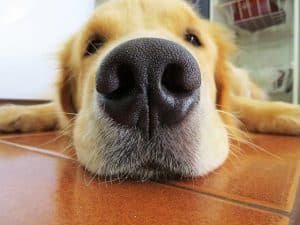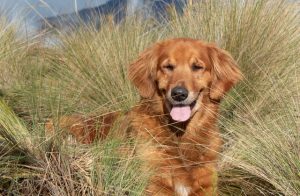Educating a dog is a big responsibility and when a tender puppy comes home we have to consider that besides being an irresistible and bushy, curious, playful and tirelessly attracted to the world, it is first and foremost a dog psychologically and emotionally not fully formed.
Premising the fact that it is always better to be followed by an educator at this early stage, with this article we will try to simply illustrate some principles of puppy socialization.
But let's go with order ...
Let’s start to learn soon!!
First of all it's good to say one thing: the basic learning period (the first 8 weeks of life) is what you spend with mom and brother.
Through the constant daily relationship with them, the little one will quickly learn the main rules of the canine world; Measuring the strength of the bite during the fight or a decisive intervention of the mother, will immediately realize that there is a hierarchical order to be respected and that each action will have a different reaction. Therefore, newly born and through his "family team" will acquire the first rudiments and guidelines to begin to shape his character based primarily on the answers he will receive.
It should be emphasized that, because of its importance, it is good not to deprive it of these first interactions ... any good breeder will give you the puppy only AFTER the first two months of life.
The different experiences that a puppy makes in the first few weeks of life are the foundation for what will be the future behavior of an adult, helping him to codify his relationship with the outside world. But this is not enough yet ... now comes the beautiful, now it's up to us!
From the canine family to the human family.
Finally we brought him home!! Let's imagine a hypothetical passage of deliveries between the natural mother and we humans. It is now our responsibility to help him to provide the necessary tools to help define the world that will face it. For the next 8 weeks (about two to four months) a very important socialization window opens, in which the puppy will have to become familiar with as many objects and situations as possible, involving all its senses at 360 degrees. It is a short time where the maximum processing peak of many stimuli will be concentrated.
First rule ... Patience is the virtue of the strong, so let's not take the anxiety !! Let's keep in mind that the little ball of hair that has just come to our home is not a machine but a living being, so with its pauses and personal adaptation times, let's not forget that a puppy gests tired very easily. Short 15-minute sessions will be more than enough, keeping in mind that it's not the amount of time but quality that makes the difference. Everything that will be proposed to him must be done in a very quiet and playful way because through the game the attention and curiosity and consequently learning are developed.
We try to give schematic form some suggestions for a balanced socialization ...
5 senses
Eyes
A puppy should SEE people of all kinds. Different age and races, with different types of dressing (children, workers, people with hats, dark glasses or simply walking with an umbrella, etc.). Familiarize with animals and objects of varying size such as horses or cars and of a different shape, such as a staircase lying on a wall or a normal garbage bag.
Nose
We can not undoubtedly neglect the dog's most developed organ, so we have to let our friend to smell something or someone all the time he wants. In this way he can store informations.
Ears
Dogs are very sensitive to frequencies for us impossible to capture, and we need to pay particular attention when he hear a new noise for the first time, not worrying about it ... We never forget that the threshold between curiosity and fear is always very subtle and What might appear to us as a neutral stimulus for a puppy could represent a moment of terror. A good hint for the first exits is to take the little one in the arm and make short walks around the house so you can start to get familiar with the many and often strangely noisy sounds of the city.
Mouth
Puppies are like kids, curious to try it all. Without the hands the mouth is the prime instrument to taste the consistency of anything. It is advisable to arrange the spaces of the house devoted to him trying to prevent possible dangers, always remembering that anything that will be presented to him will try to "taste it." You can buy specially designed, particularly sturdy games that will encourage our little friend to sow without dangers. Teasing apart from having a cognitive purpose also has a relaxing effect.
Touching
From the first days do not forget to touch the dog by getting him to feel our hands on him. Continuous search of the contact will undoubtedly increase your confidence by relieving routine operations such as nail cutting, tooth cleaning or simply brushed time. A dog who has become accustomed to being touched will be even more relaxed by an adult when she is to visit a veterinarian.
It's also important to make it walk on surfaces of different types such as grass, grates, concrete, carpets, any material is good for experiencing a different feeling.
Should we go to School??
If we think we are not able to follow the puppy in this important stage of life we should turn the so-called Puppy Class.
They are places where the puppy can experience a whole host of different stimuli in a controlled environment, surrounded by puppies like him and helped by professionals who will first teach us the correct approach we should keep. Every dog is emotionally different, educators will help us to better understand our friend and read the signals he sends us so that we can act in the best way and without creating involuntary little traumas.
The courage to "evaluate"
Absurd races, uncontrolled barking or even attempts to bite are very often dictated by fear and insecurity to something or someone.
A dog who has had a proper puppy socialization will therefore be a much more balanced dog, more confident and able to adapt much more quickly to new situations without any fear.
By Alessandro M.





Leave a Reply
You must be logged in to post a comment.